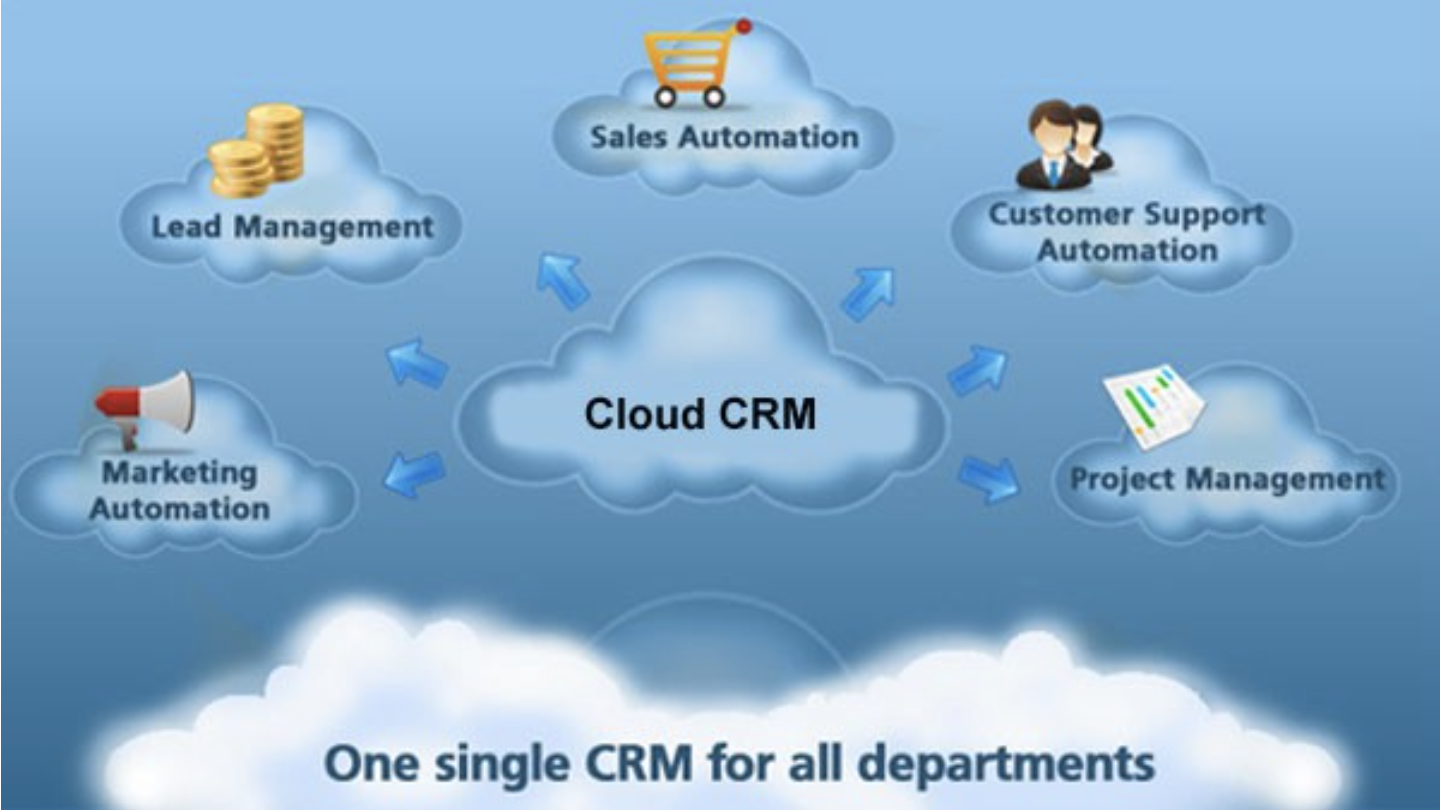
Companies relying on digital marketing know that keeping the contact information of customers, suppliers, and other business contacts is crucial to success. Digital marketing begins with building a solid email list for your marketing communications — all your welcome emails, follow-up emails, and abandoned cart emails, for example. To help with maintaining your contacts, an efficient system for sourcing and converting leads, following up, and keeping customers engaged in the long term is essential.
But that’s just the beginning. Once you’ve got your email list together, you have to keep each person’s contact information organized and accessible to anyone on your team who needs it. That includes personal information for sending emails on customers’ birthdays or targeting their shopping habits. It also includes title information that assures your email reaches a company’s appropriate person.
That’s what contact management is: It refers to a company’s practices for storing and managing the information of its business contacts. From the businesses that supply raw materials to the loyal customers the business relies on to remain profitable.
In this article, we’ll discuss what contact management is, the different types of contact management, and why it’s necessary for modern businesses. We’ll also look at the similarities and differences between contact management and customer relation management (CRM) and investigate the software tools available to ensure your contact list works as hard as you do.
What is contact management?
In a sense, contact management is precisely what it sounds like — the process of organizing and storing information about customers, suppliers, and other individuals you do business with. However, what that looks like varies from business to business. For some businesses, contact management is as simple as keeping a Microsoft Excel spreadsheet with a few columns containing names, physical addresses, email addresses, telephone numbers, and the like.
But for many companies, contact management is a much more complicated endeavor. Just think of all the people you communicate with on a regular basis as part of your core business functions. If you run an e-commerce or traditional retail business, you’ll likely focus on customer contact management.
Depending on the scale of your business, that could be quite the list. Your essential contacts include the loyal shoppers who have patronized your business for years, new customers who recently made their first purchase, and potential shoppers you’re targeting with your marketing efforts.
And your contact list doesn’t end there. You’re also in regular communication with manufacturers who produce the goods you sell or the suppliers who provide the raw materials you use to manufacture your products. Your list of contacts gets longer and longer when you consider:
- The shipping companies that deliver your products to customers
- The warehousing companies that store your inventory, process orders, and package deliveries
- The utility companies, landlords or mortgage lenders, and third-party accountants
As you can see, your contact list quickly goes from your most loyal shoppers to an expansive directory of all businesses and individuals that keep your business running smoothly.
Why is contact management important?
Contact management may seem like another rudimentary aspect of the business process that requires lots of work with minimal payoff, but there’s more to it than that. Efficiently managing your business contacts is just as important as some of the more obviously beneficial processes you undertake, such as marketing, customer service, and sales.
The reasons for that are simple. Customer contact management ensures your customer data is well-organized and easily accessible when needed. As such, contact management is integral to fostering customer relationships. It allows you to keep a range of essential marketing information organized in one place. That information includes things like:
- Biographical information, such as name and date of birth
- Demographic information, such as addresses, age, race and ethnicity, and income
- Psychographic information, such as values, lifestyle choices, aspirations, and interests
- Sales information, such as shopping history and purchasing habits
Having that information ready enables you to access and analyze it to gain insights into your customers’ behavior and your own business practices. As such, contact management helps businesses:
- Improve customer service: Contact management helps businesses gain insight into their customer base and keeps critical customer information organized and collated. You can provide a more personal customer experience, enhancing your customer service.
- Increase sales: Sales contact management can help businesses improve their forecasting by tracking and collating consumer shopping habits. This, in turn, enables companies to meet consumer demand, preventing sales that could be lost when sudden surges in demand exceed available inventory.
- Optimize marketing efforts: Contact management can improve a business’s market efforts by aiding in personalization, which is key in modern marketing. Modern consumers don’t just appreciate personalized marketing communications from businesses — they expect it. Properly managing your customer contacts can help.
Contact management helps business keep their contact information organized, accessible, and updated. An effective contact management system can improve a company’s CRM, optimize marketing efforts, and increase sales. When it’s time to automate your contact management system, look to Constant Contact. Our contact management dashboard has special tools and unique features for optimizing how you manage contacts, segment lists, organize insights, and more.

What is contact management software?
As we mentioned earlier, contact management can vary from business to business, with some businesses needing little more than a spreadsheet or even a list in a Word document. But when efficiency is your goal, and your contacts list is longer than a few entries, a simple Excel doc isn’t likely to cut it. That’s where contact management software comes in handy.
Contact management software automates your contact management processes. It digitizes the data you keep about your customers, stores it in a secure and organized fashion, provides a quick and easy way for you to update the information, and makes the information accessible to anyone on your staff who needs it, whether they’re on-site or working remotely.
Contact management systems are digital versions of a Rolodex or address book. Whether on a computer hard drive or a cloud-based contact management system, your customer data is digitized and organized using the power of complex computer algorithms and, in some cases, artificial intelligence. As such, a software contact management system:
- Reduces data entry errors such as incorrect, incomplete, or missing information
- Saves time by automating contact management processes, such as calendar management and information updating
- Optimizes how your team accesses consumer data
What is the difference between CRM and contact management?
If you’ve been paying attention, you’ve probably realized that contact management sounds a lot like another integral aspect of running a modern business: Customer relationship management (CRM). And you’re not wrong, as there’s a lot of overlap between the two.
However, they have several differences. Contact management, as we’ve noted already, refers to how a company stores and organizes information on its business contacts. CRM, however, refers to the entire protocol a business has in place for managing its relationship with those contacts. That said, due to how closely the two are linked, contact management has essentially evolved into an aspect of CRM.
Think of it as a combination of contact management and CRM. More than just collating biographic and demographic information about customers, CRM contact management involves tracking all communication between your business and your customers, including:
- Phone calls
- Text messages
- Form fills
- In-person meetings
Benefits of contact database software
CRM contact management also involves tracking customer purchases, organizing quotes, and other important documents related to each customer. Innovative businesses use CRM software to digitize the CRM processes so all that information is stored, organized, and available to employees across departments. As such, CRM poses a range of benefits to businesses.
Deeper customer insight
With CRM contact management software, you can easily track a customer’s shopping habits and access valuable information that cues you into how they patronize your business. That includes personal data like age, gender, income and education levels, and geographic information. It also includes psychographics like personal values, interests, and personality traits, plus information about consumer behaviors, such as how customers use your website or mobile app, interact with your social media accounts, and subscribe to your email and newsletter lists.
That sort of insight enables you to glean a deeper understanding of your customers, which can improve your progressive profiling efforts. Progressive profiling refers to your methods for building customer profiles over time based on how they interact with your company. These insights can also help you craft more accurate customer journey maps that help you understand and improve customer experience.
Improved organization and data accessibility
CRM software organizes and stores customer information in a centralized database. Generally, that database is either:
- A cloud-based system that stores information in your company’s business cloud
- Non-cloud or locally hosted systems that store customer data on your company’s computer servers or hard drives

Having a central digital storage location for customer data means anyone in your company who needs to access information about a customer can do so with the click of a few buttons.
Moreover, the information is all organized using a virtually infallible computer brain and not a human’s error-prone (though still remarkable!) brain. Understandably, this improves the overall organization and accuracy of your customer records.
Enhanced sales and marketing outcomes
A perfectly organized and easily accessible database for contact management can optimize your marketing efforts and boost sales. Marketing automation programs, such as those for email marketing, can integrate with your CRM contact management systems to make marketing communications more personal.
For instance, you can set procedures so customers receive special coupons on their birthdays. You can also segment your lists by purchase history so they receive the most relevant information about upcoming sales and promotions.
With regard to sales, your salespeople can easily access a customer’s purchase history and use it to make products or services more appealing to individual customers, increasing the likelihood of closing the deal.
Trends in contact management software
As technology grows ever more advanced, brilliant people continue to develop new ways to capitalize on it and fine-tune contact management software to benefit businesses even more. Keeping up with the latest trends is crucial for businesses relying on contact management systems to keep their customer information organized and accessible.
Some of the most exciting trends in CRM are focused on automation and personalization, which enables businesses to customize services and marketing to specific customers.
Automation
Thanks to advances in AI, automation is a huge (and hugely important) trend in contact management software. Machine learning — or the ability of a computer to “learn” from users and adjust its services accordingly — is one example. Machine learning enables automated systems to analyze consumer data more effectively and make changes to marketing efforts according to the results of that analysis.
Customer experience & personalization
Enhancing customer experience is an essential driver of trends in contact management software. Unique, personalized experiences are important to modern consumers. One important trend in CRM comes in the form of automated chat agents. They learn quickly from customer interactions and personalize services accordingly. For example, AI chat agents can analyze interactions and recognize when a customer hasn’t received an answer to their question. Fine-tuning AI-driven chatbots that interact with customers to provide a more pleasurable experience is another.
Does your business need contact management or CRM?
The time to invest in CRM contact management software comes at a different point for every business. Its benefits mean there’s never a wrong time to make the switch. But there are certainly times when automating your CRM contact management efforts is optimal.
Infant businesses have less to gain from CRM contact management systems than more established brands with extensive contact lists and high revenue. If your business has been around for a while and you’ve recently noticed an increase in sales, it could mean it’s time to invest.




